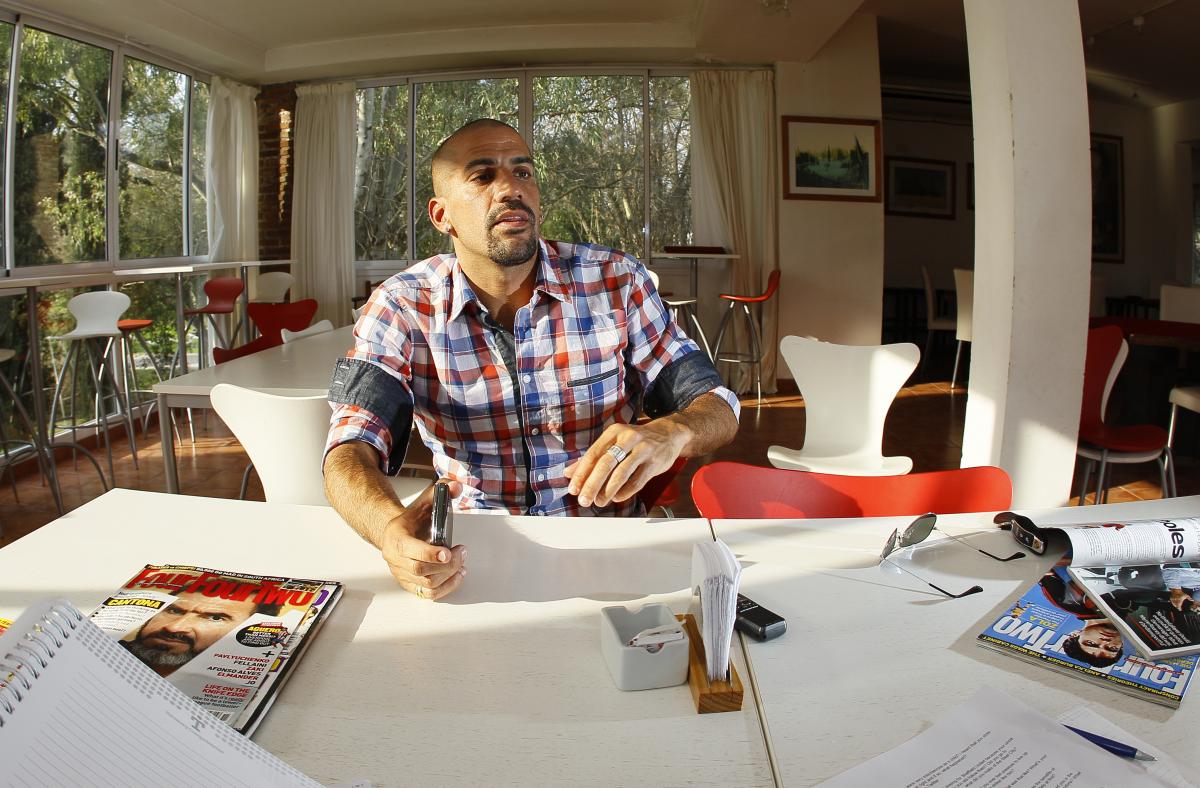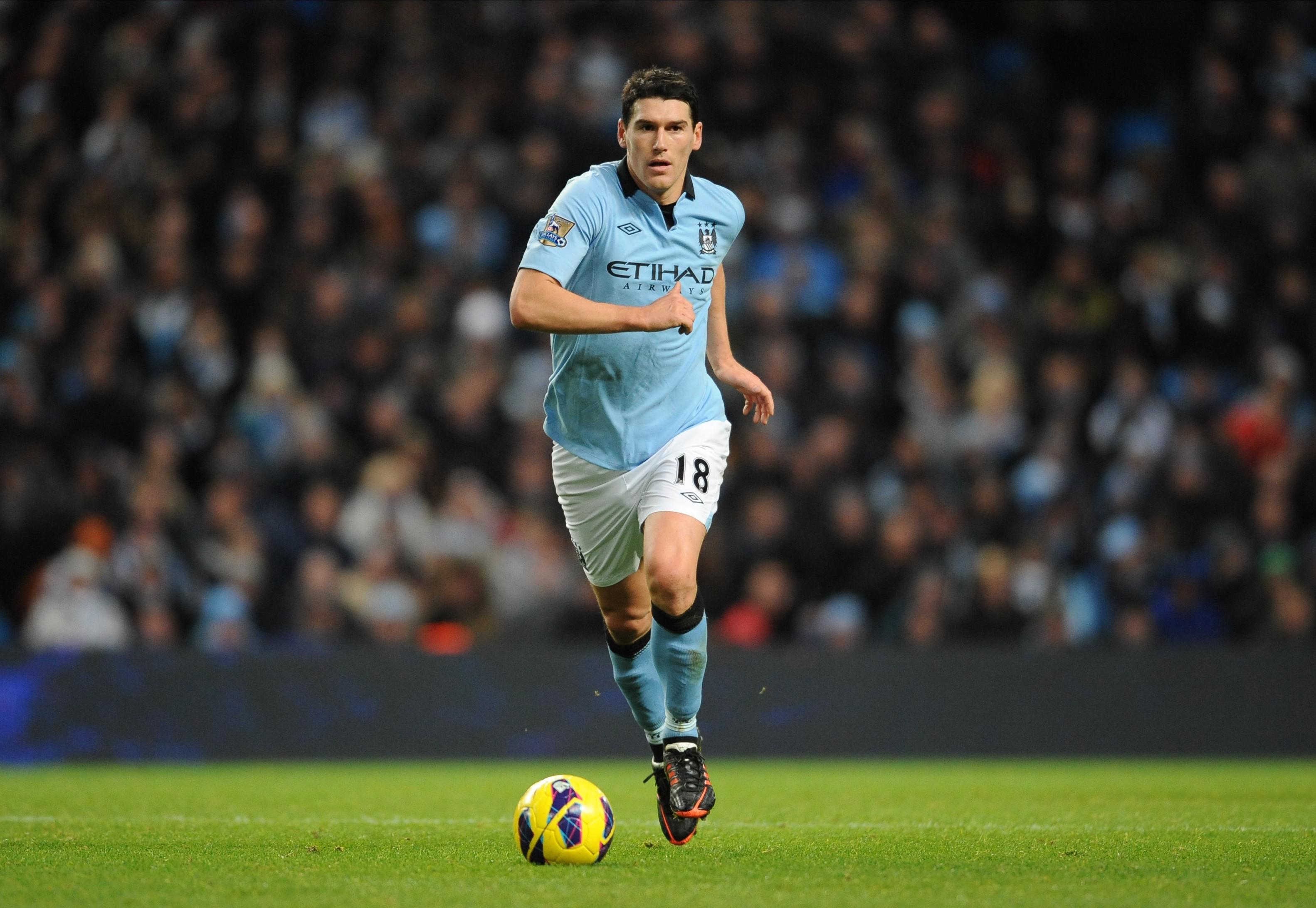Juan Seba Veron: One-on-One
"Maradona called us to his hotel room: 'I have a present for you...'"

For the January 2013 issue, FourFourTwo sat down for a One-on-One chat with former Estudiantes, Boca Juniors, Sampdoria, Parma, Lazio, Manchester United, Chelsea, Inter and Argentina midfielder Juan Sebastian Veron. Seba was so happy to chat that we couldn't fit it all in the magazine, so here's some completely web-exclusive extra questions for you...
As a boy you dreamed about playing for Sheffield United because your uncle Pedro Vere played for them. Do you still follow them? Did you go to Sheffield while in England and if so, what did you make of the Steel City?
Actually, and being completely honest, I don’t remember if I dreamed about playing for them. When I was in England I wasn’t moved by the idea of visiting the stadium. The name that was always in my mind was Old Trafford.
I grew up hearing stories about Old Trafford, about those games my dad played against Man United in 1968. Commemorations, paper clips, the name was always there. But I had never had the chance of visiting. I had only played once against Manchester United, in Monaco – and against England at Wembley.
But the very first time I visited Old Trafford was as a Man United player. It was incredible, as I walked into I thought about my dad’s walking through the same corridors. They took me to the museum and there’s an Estudiantes crest with my dad’s cartoon. Imagine my feelings! At the moment, I was trying not to think much about it, but when I was alone, it was really emotional.
You were nicknamed The Little Witch because your dad was The Witch. Can you remember when you first got that nickname?
I can’t really say when someone first called me that, because people always knew my name, so I was always Little Witch. And I like it. The people that have known me since I was a kid still call me that way, while younger people now call me Witch. It’s the same for me.
Your dad was obviously a top player. Did you ever feel pressure to live up to him? Didn’t you fancy being a striker like him?
I actually started playing up front, but over the years it turned out naturally that I belonged to midfield. As for the pressure, I’m not sure if it’s the right word. I was trying to show that I played because of my own attributes, rather than for being the son of. Perhaps sometimes it meant that I had to do more than the regular player, because some people could think that I had advantages. I enjoyed playing football, it wasn’t that I had the pressure for playing because of my dad.
What’s the best gift you’ve received in football?
It was from Diego [Maradona]. I was the youngest player of the squad. He treated everyone in the same way, no matter if they were [Claudio] Caniggia or Kily Gonzalez and I, the two youngsters. One day, at Boca's hotel, he calls four of us to his room. “I have a gift for you”, he says, and hands a wrapped box to each. I open it and read "Rolex"… it was a watch.
I didn’t know what to do. I don’t normally use watches. To that day, I had a plastic digital watch when I needed it. My most luxurious watch had been a Casio with calculator. And suddenly receiving that gift from him… I instantly whispered to Kily: “Oh God, but how much is it worth it?” “No idea," he says, "but more than a fortune”. I don’t know if the others kept theirs, but I can say for sure that mine is very well-kept!
What made you sign for Sampdoria? Did you ever discuss the benefits of playing in Italy with Maradona and how did you find life in Italy at first?
It wasn’t good news for Boca, as we were battling for the title and I had just arrived, four months before. At the beginning Diego and Carlos Bilardo didn’t want me to go, but in the end they agreed. Diego told me that I would enjoy Italian football, and he was right. “The settlement will be complicated, but you must be patient”, he told me. At that time there weren't so many South Americans leaving for Italy so young. First Javier Zanetti and Ayala, then Hernan Crespo and I, we opened the doors to many more.
Did Roberto Mancini tell you something special in a very famous victory against Inter?
Yes, that’s one of the fondest memories I have of that settlement Maradona had told me. We were losing 3-1 to Inter. During the game, Roberto approaches and tells me: “Relax; play as you know. If you play as you know, we’ll win this”. I don’t know if it was by chance or I really played well, but we won 4-3. And I felt the settlement was over.
Roberto is a friend. I care for him. He tried to help me from the first day I walked into that dressing room, and he always tried to make me sign for the teams he managed. He has a strong personality – many people love him and many don’t – but if you get to know him well, he’s extraordinary.
Get FourFourTwo Newsletter
The best features, fun and footballing quizzes, straight to your inbox every week.
At Sampdoria you were compared to Toninho Cerezo. Was it something to be proud of?
I played against him in 1995, during my first professional season in Estudiantes. The funny thing is that he remembered me! In Italy they started the comparison: the way we played, my dark skin, my pace and the way of walking. It was an honour, I never had problems with being compared. And later they’d even compare me with Zidane, it was a complete exaggeration, the other was a real beast, but in Italy they put labels on certain players as fantasisti, even if they have different ways of playing: Totti, Zidane, myself.
Who was the ideal partner for sneaking out?
Christian Karembeu. He was un grande, as they say in Italy. He was good-looking, funny, easy-going, he spoke French, English, Italian, Spanish, anything, plus the dreadlocks, that was a bonus. We sneaked out several times and got caught some of them. Eriksson caught us once. He wasn’t happy about it: he warned us in a serious manner...
Interview: Martin Mazur. Portraits: Javier Garcia Martino. For many more questions – including many on his time in England – see the January 2013 issue of FourFourTwo.
